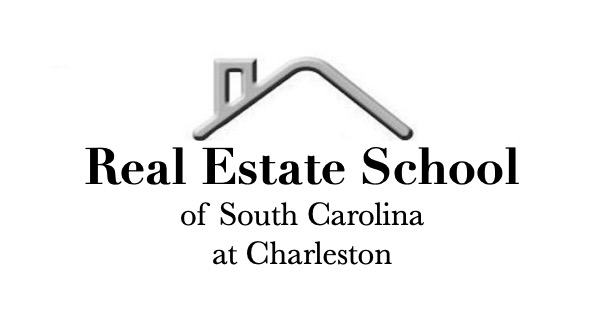Behind the Scenes: How a Real Estate School Prepares You for Success
Wiki Article
How much time Does It Require To Full Training Courses at a Real Estate Institution? Learn Below
The duration to complete courses at a Real Estate School can vary extensively. This irregularity is influenced by state guidelines, program layouts, and private conditions. While some states mandate even more hours than others, the chosen understanding design can additionally play a considerable role. Comprehending these factors is essential for possible students. What could appear simple might reveal complexities that affect timelines and end results.
Understanding State Needs
Exactly how can ambitious property specialists browse the varying requirements set by different states? Each state in the U.S. has its own regulative structure genuine estate licensing, consisting of details academic requirements, exam requirements, and application procedures. Some states mandate a particular number of classroom hours, while others may permit on the internet programs or different education and learning layouts. Furthermore, states vary in their continuing education and learning demands for permit revivalTo successfully navigate these intricacies, ambitious agents need to conduct extensive research study on their state's realty compensation site, where outlined info on licensing demands is typically readily available. Seeking advice from developed professionals in the area can additionally provide important understandings. Potential prospects must take into consideration enrolling in state-specific training courses to assure compliance with neighborhood laws, eventually assisting in a smoother access into the genuine estate profession.
Program Formats and Their Effect
Various training course formats offered for genuine estate education can greatly affect the learning experience and completion time for hopeful agents (Real Estate School). Typical class setups supply structured routines and face-to-face communication, which can enhance understanding with straight engagement with instructors and peers. Such styles might need a longer time commitment due to taken care of class times and areas.On the other hand, on-line courses provide versatility, enabling trainees to research at their own speed and by themselves routines. This adaptability can cause much faster conclusion, depending upon private technique and motivation. Crossbreed courses, which combine both on-line and in-person elements, provide a balance in between both styles, catering to diverse discovering choices. Ultimately, the option obviously style can considerably affect not just how swiftly a trainee completes their education and learning but likewise the general performance of their understanding experience in preparing for a Real Estate career.
Self-Paced Understanding vs. Accelerated Programs
Self-paced understanding and accelerated programs each offer distinct advantages for those going after actual estate education and learning. Self-paced understanding permits pupils to progress with the material at their own speed, suiting individual schedules and finding out styles. This flexibility can be particularly valuable for individuals stabilizing work or family members dedications, as they can commit essentially time based upon their circumstances.On the other hand, accelerated programs are designed for those who favor a more intensive method. These programs typically condense the curriculum into a much shorter time structure, enabling students to finish their education and learning rapidly. Real Estate School. This style can be beneficial for inspired learners enthusiastic to go into the real estate field swiftly

Inevitably, the selection between self-paced discovering and accelerated programs hinges on specific choices, goals, and time accessibility. Both approaches can effectively prepare trainees for a successful occupation in real estate, offered they straighten with the student's individual conditions and ambitions.
Normal Training Course Lengths
Real estate programs differ substantially in length, affected by aspects such as the program type and state regulations. Typically, pre-licensing programs range from 60 to 180 hours, depending upon the state demands. California requireds 135 hours of coursework, while Texas requires 180 hours. These courses are developed to cover crucial subjects, consisting of property law, money, and principles.Post-licensing education typically requires fewer hours, with many states requiring around 30 to 90 hours of added training after acquiring a license. Continuing education training courses, which accredited agents have to finish regularly, typically last between 3 to 15 hours.
On-line courses can use flexibility, permitting trainees to complete their research studies at their very own rate, while in-person classes may adhere to a set routine. Ultimately, prospective real estate specialists must consult their state's genuine estate payment for particular training course length requirements and choices.
Variables That Impact Your Timeline
What elements add to the duration of realty training courses? Several factors play an essential duty in determining the length of time it requires to finish these programs. First, the course layout can greatly impact timelines; on-line training courses usually provide flexibility, enabling trainees to advance at their own speed, while in-person courses generally have fixed timetables. Furthermore, the overall variety of hours required to complete the coursework differs by state and institution, with some programs needing much more extensive training than others.
Frequently Asked Concerns
Can I Transfer Credit Ratings From An Additional Realty Institution?
Yes, transferring credit histories from an additional property School is commonly feasible, yet it depends on the getting organization's plans. Trainees must confirm specific demands and approval procedures to assure a smooth credit report transfer experience.What Is the Expense of Property Courses?

Are There Prerequisites for Joining in Real Estate Courses?
Typically, there are marginal prerequisites for enrolling in realty programs. Most programs need a secondary school diploma or matching. Some may additionally recommend background knowledge in finance or organization for better comprehension of training course product.Just how Do I Select the Right Real Estate School?
To pick the ideal real estate college, one need to think about accreditation, course offerings, teacher credentials, trainee evaluations, and assistance services. Investigating different colleges and checking out schools can supply valuable understandings for making an informed decision.What Materials Are Needed for Genuine Estate Courses?
Real estate courses generally call for books, access to on-line sources, lawful standards, and study overviews. Additionally, trainees might require a computer or tablet, stationery for notes, and periodically, products for hands-on functional exercises.The duration to read more finish courses at an actual estate School can vary commonly. Various course styles available for actual estate education and learning can substantially affect the knowing experience and conclusion time for hopeful agents. Genuine estate programs vary considerably in size, influenced by aspects such as the program kind and state regulations. The expense of real estate training courses commonly ranges from $200 to $1,500, depending on elements such as place, program, and organization length. To pick the ideal actual estate institution, one must take into consideration accreditation, training course offerings, teacher qualifications, pupil testimonials, and support services.
Report this wiki page